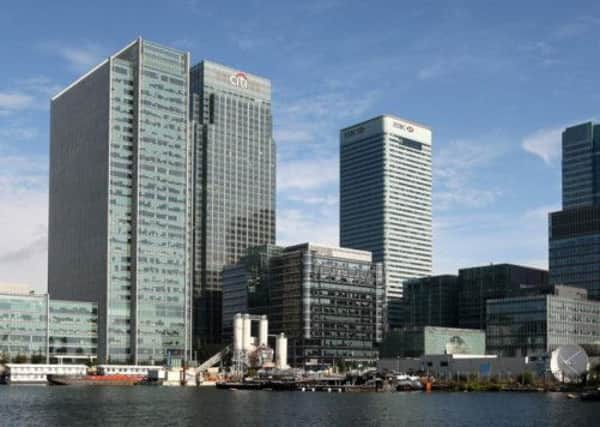Watchdog accused over pace of redress to firms


Representatives of Bully Banks, an organisation that speaks up for victims of Interest Rate Swap (IRSA) mis-selling, claimed that the Financial Conduct Authority (FCA) is being “led by the nose by the banks”.
According to figures released by the FCA yesterday, only 10 small businesses have accepted an offer of redress in connection with IRSA mis-selling.
Advertisement
Hide AdAdvertisement
Hide AdA Bully Banks spokesman said: “None have received any money 14 months after it was ruled these products were mis-sold.”
Bully Banks chairman Jeremy Roe said: “We are bitterly disappointed with the latest statement from the FCA. It should be there to look after us, and is failing in that job, the banks are continuing to treat small businesses with contempt and it is letting them get away with it.
“They failed to set the rules at the beginning, and put banks in the driving seat leading to a viciously slow resolution, abuse of trust and continued suffering by the victims.”
The banking industry is facing a big compensation bill after a review of IRSAs sold to small businesses found that more than 90 per cent had been mis-sold. In 2012, the Financial Services Authority (FSA) – which was replaced by the FCA this year – said a “significant proportion” of the cases that were the subject of the review were likely to result in redress being due to the customer.
Advertisement
Hide AdAdvertisement
Hide AdInterest rate swaps are complicated derivatives that might have been sold as protection – or to act as a hedge – against a rise in interest rates. In many cases, the customer did not fully grasp the risks involved. They were marketed as low-cost protection against rising interest rates, often as a condition of a business loan. But businesses such as bed and breakfasts and takeaway shops were left with colossal bills after the financial crisis caused interest rates to plummet to historic lows. In some cases, this cost has dragged the firm under.
Yesterday, the FCA said, that since the beginning of the full review in May 2013, the banks involved have taken on 2,800 staff to work through claims and have so far reviewed more than five million documents. There are more than 30,000 cases to review, the FCA said. More than 25,000 sales of IRSAs are in the process of being assessed, and the first letters offering compensation have been sent out. The FCA expects that most customers will be informed of the result of their review, and of any possible basic redress, by the end of the year.
The FCA statement added: “Due to their complicated nature, redress offers to customers making a claim for certain consequential losses, may take longer. By the end of August, 10 offers of redress have been accepted by businesses, totalling £500,000. The FCA expects this figure to increase rapidly over the coming months – 210 offers have already been sent to customers with a further 1,700 offers due to go out shortly.”
Martin Wheatley, chief executive of the FCA, said yesterday: “With 85 per cent of cases now under review, banks have made progress. But like the thousands of affected small businesses, we want to see redress paid quickly to those who have suffered loss as the result of mis-selling.”
Advertisement
Hide AdAdvertisement
Hide AdBritish Bankers’ Association chief executive Anthony Browne said yesterday: “The report by the FCA shows the majority of customers affected have been contacted by their bank and are working through the detail of their reviews.
“Banks are working hard with the regulator to ensure that the process, which began four months ago, is completed as quickly as possible. As the FCA reports today, the industry has suspended payments for businesses in financial distress pending completion of the review.”